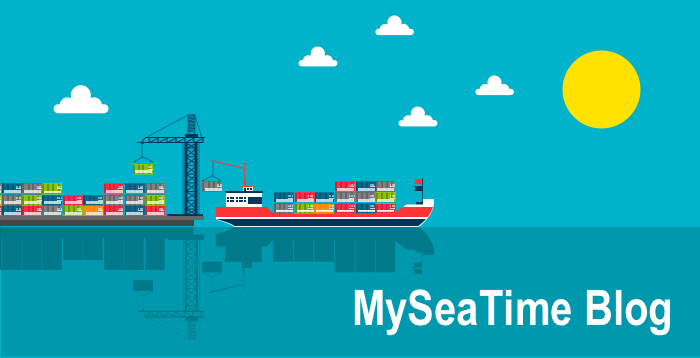Q.What is the difference between a Convention and a protocol ?
Convention
A convention is formal agreement between states and is usually an instrument negotiated under an international organisation.
For example, shipping has many conventions that were negotiated under International Maritime organisation (IMO). Some of these are
- International convention on safety of life at sea (SOLAS)
- International convention for prevention of pollution at sea (MARPOL)
- International convention on Load Lines
- International convention on Tonnage measurement of ships
- International convention on the control of harmful anti fouling system on ships
Protocol
A protocol is one of the ways in which a convention can be modified.
A protocol is used for the modification of an IMO convention when
- There is a significant change to the original convention
- When a new chapter is added to the original convention. For example when Annex VI was added to the MARPOL
- When a change is applicable to the all the chapters
- When IMO feels, the change need to be brought by the protocol
The amendments by protocols are not binding on all the states that have ratified the original convention. The amendments by the protocols are only binding to the states that ratify the new protocol.
For example IMO introduced "harmonised system for ship certification". But this change required change in the protocol of the SOLAS 74. So IMO had to bring these changes by a new protocol to the SOLAS called 1988 protocol to the SOLAS.
Now all the states that had ratified the SOLAS 74 will not become party to this new protocol. So they may or may not choose to be part of this protocol.
- Like (5)
- Dislikes (0)
Swapn Panda
Oct 30, 2017Thank you for this explanation Sir. I have another query. How would we define Annex, and what is the difference between an annex and a protocol?
Convention
In order to understand the meaning of Convention, we need to first understand the meaning of ‘treaty’. ‘Treaty’ is a formal agreement between two states signed by official representatives of each state. But, for any such agreement to be called a treaty, the following four conditions have to be met:
First of all, it has to be a binding agreement, which means that the contracting parties intended to create legal rights and duties. Secondly, the agreement must be concluded by states or international organizations with treaty-making powers. Thirdly, it has to be governed by international law – that is, the general good of mankind. Finally, the agreement has to be in writing.
The term "Convention" is also basically a treaty (meeting the above four requirements) but, it has participation at the global level where every member country can participate. Conventions are therefore agreements negotiated under the auspices of an international organization (UN, IMO, UNESCO, UNICEF etc) (e.g. United Nations Convention on the Law of the Sea of 1982). The same holds true for instruments adopted by an organ of an international organization, such as the IMO, (e.g. the SOLAS Convention, MARPOL 73/78 Convention, STCW Convention – they are all treaties but are called Convention because in order to make it a law, the countries from all around the world participated).
Protocol?
The term ‘Protocol’ has five functions in international law:
(a) Protocol of Signature. (b) Optional Protocol. (c) Protocol based on a Framework Treaty. (d) Protocol as a supplementary treaty. (e) Protocol to amend. As far as we are concerned, IMO has only used the ‘Protocol to Amend’ function in its Conventions so far, and thus we will only discuss this.
As the name suggests, ‘Protocol to Amend’ will deal with a change to a Convention but, a change to a Convention we call it an Amendment. So, in order for the change to a Convention to be called a ‘Protocol’, and not an amendment, two parameters have to be fulfilled:
1. The issue has to be of vital importance 2. The change should be such that the ‘existing face’ of the treaty / convention is altered.
For example, the change of 1997 (Introduction of Annex VI) to MARPOL 73/78 is called a Protocol and not an amendment. Why? Because, the issue of air pollution was of vital importance based on the global issue of “global warming” and the introduction of a new annex changed the face of the existing convention (earlier when we mentioned MARPOL, we meant five annexes, now we mean six annexes; and, Annexes 1 to 5 deal with prevention of pollution of the marine environment whereas, for the first time MARPOL was going to deal with prevention of pollution of the air environment). Hence the change of 1997 to MARPOL is NOT called an amendment, but Protocol of 1997.
Blog on same topic
Blog you cannot miss!
Questions on same topics
Popular questions and their answers
- The tanker is carrying Gasoline but in " List of Dangerous Goods " we normally tick "NIL " to report to the Custom . I dont know Why? Because Gasoline UN number is 1203 and belong Class 3 of IMDG code.
- When the ship's name and classification society changes, is it required to be reflected in the ship's plans? I am sailing on a vessel whose plans have the stamp of previous class with old name.
- What are the disadvantages of ISM code, if any?
- What is the difference between EEOI and EEDI?
- Why was there a need for making a new IBC code?
More things to do on myseatime

MySeaTime Blogs
Learn the difficult concepts of sailing described in a easy and story-telling way. These detailed and well researched articles provides value reading for all ranks.

Seafarers Question Answers
Ask or answer a question on this forum. Knowledge dies if it remains in our head. Share your knowledge by writing answers to the question

MySeaTime Podcast
This podcast on the maritime matters will provide value to the listeners. Short, crisp and full of value. Stay tuned for this section.



